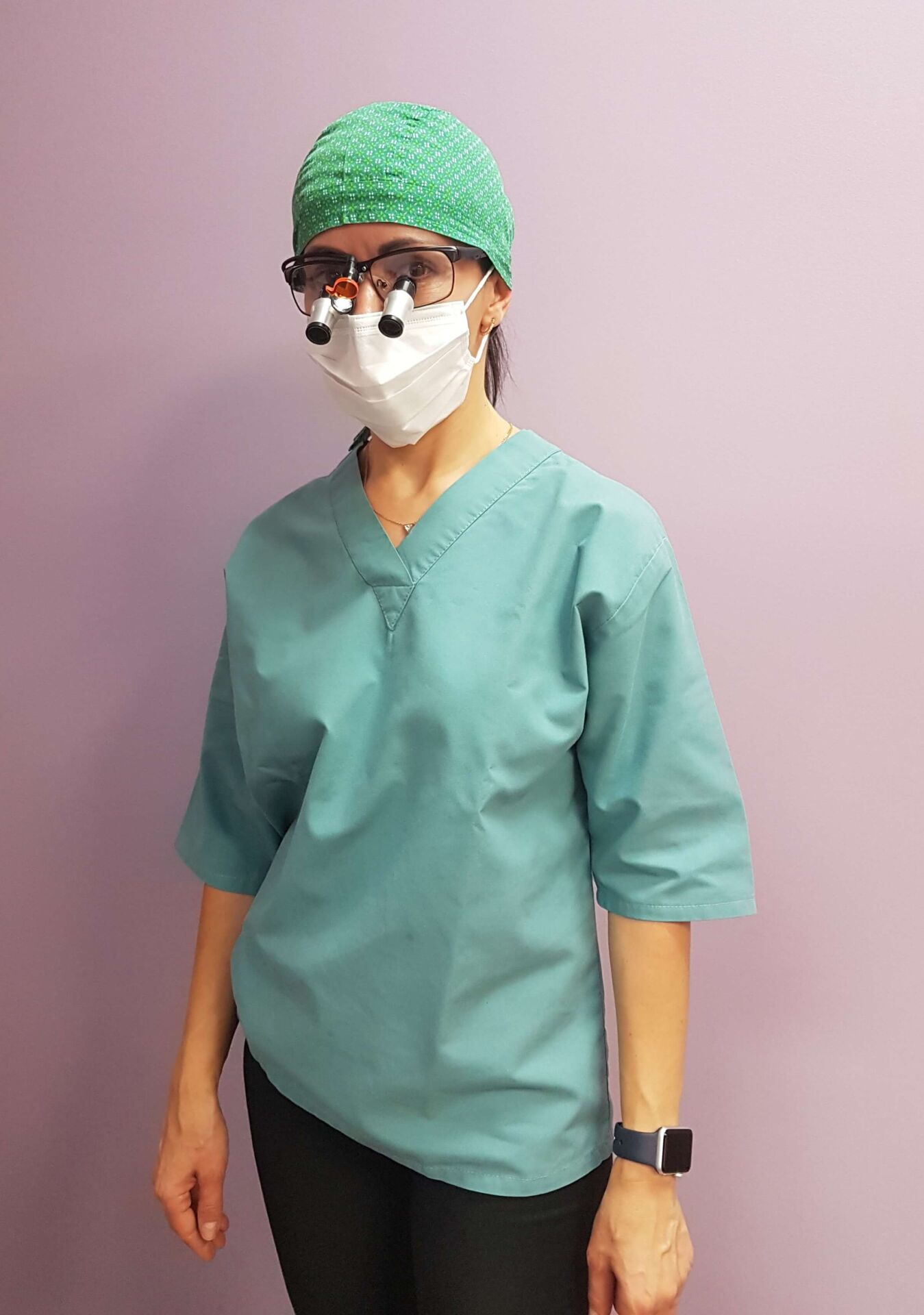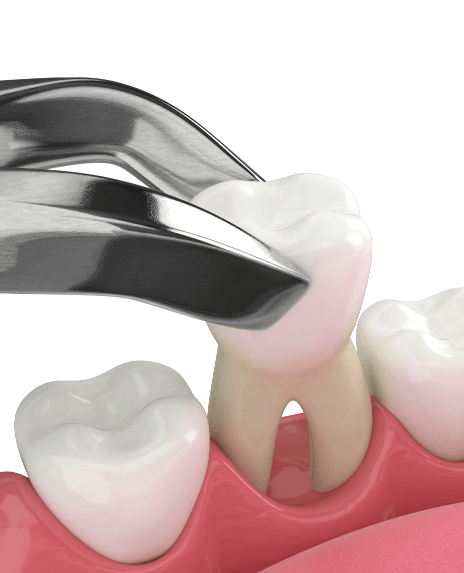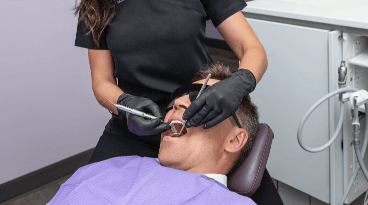Oral surgery includes many different procedures, including gum surgery, wisdom teeth removal, dental implants, removing diseased mouth tissue, and any surgical procedure performed in or around the mouth and jaw.
At Lakeview Dental Centre, we understand that oral surgery can come with nervousness, fear, and anxiety. One way we can help ease the worry is to provide you with a clear step-by-step explanation of what you can expect before, during, and after the procedure.
Our oral surgical team is not only caring and understanding, they are highly trained to perform treatments safely and with as minimal discomfort as possible. They take the time to answer your questions, address any concerns, and provide comfort when you need it.


One of the most common types of oral surgeries involve removing teeth. There are many reasons your dentist may decide you need a tooth extraction. The tooth may be diseased, decayed, broken, or your mouth may simply have no room for them.
Wisdom teeth commonly need to be removed as they grow in unpredictable and uncomfortable positions that can throw the rest of your teeth out of place, or they may not fit. “Impacted” teeth are those that never fully establish themselves in the mouth and stay either completely or partially below the gums. This is often because the jaw isn’t large enough for them. It’s common for dentists to suggest removing impacted teeth early in their development to minimize any excessive pain and likelihood for complications.
Book an appointmentMultiple gum surgeries exist to treat gum disease. While some cases of gum disease are caused by medications or chronic illness, most often it is because of poor oral hygiene at home.
When excessive bacteria and plaque build up around the teeth, it can become too much for your body to fight. The infection will begin to damage your teeth, and gums. Once the disease has progressed to this stage, Dr. Newman will discuss your options between the following types of surgeries:
Also referred to as gingival flap surgery, your dentist will separate your gums from your teeth to remove build up and bacteria from the area before replacing and securing the gums back to the teeth.
NEW! We are now able to offer LANAP Treatment using laser dentistry to treat gum disease with less discomfort and shorter healing times.
In this procedure, your gums are folded back from your teeth much like a pocket reduction procedure so that your dentist can remove the buildup and bacteria from underneath. Where Regeneration differs from Pocket Reduction is what happens next. Instead of replacing the gums, your dentist will place membranes, bone grafts, and/or tissue-stimulating proteins around your teeth in order to encourage your gums to regenerate around your teeth.
Here, your dentist removes excess gum tissue from your teeth to make your teeth appear longer. This surgery is used for cosmetic and health purposes. For gum disease, the exposure of the teeth allows for better cleaning. It is also used when a tooth has been cracked and we require more tooth structure to support a crown.
Soft tissue graft would cover receded roots. Your dentist can use tissue from your own mouth to cover the roots, improve the appearance of the gums, reduce sensitivity to cold, and reduce the risk of developing tooth cavities down the exposed roots. We use the Pinhole® Surgical Technique which is a patented, more comfortable, faster way to address receding gums with much less downtime and less discomfort. The gums get pushed back into place using special instruments. It can be done on a few teeth, half the mouth, or the entire arch in one appointment.
A biopsy may be ordered if something suspicious shows itself in your mouth. A local anesthetic will numb the area and the dentist will remove a small piece of tissue to send into a lab for tests.
All of your questions are answered to help you prepare for the surgery. During the surgery, you can expect our team to check in with you and adjust to your comfort level.
At Lakeview Dental Centre, we use the latest in dental technology to assist with a diagnosis and a treatment recommendation.
Dr. Newman is qualified to practice oral surgery procedures and will present her expert suggestions to combat the problem, including alternatives. If you are anxious about your surgical procedure, we will talk to you about sedation options. On the day of your surgery, you will need the assistance of a family or friend to transport you to and from the dental office.
We understand how difficult and nerve-racking oral surgery can be. The good news is, most surgeries can be prevented. Maintaining a good oral hygiene routine and keeping up with dental appointments can help prevent gum disease, tooth decay, and other dental issues.
